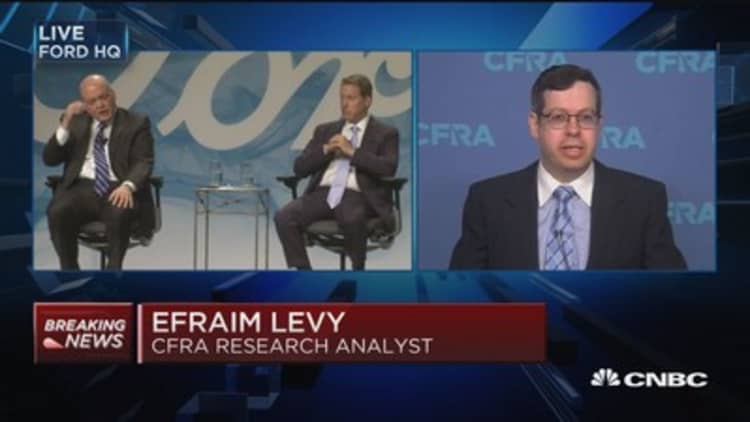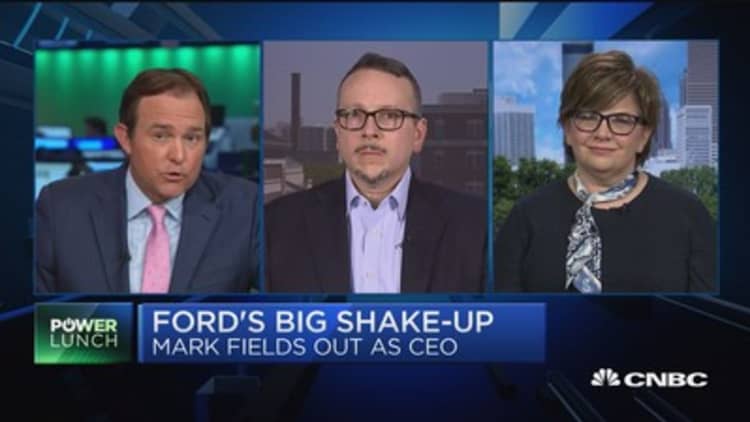
Ford Motor's many flubs under Mark Fields were becoming existential for the $43 billion carmaker's founding family. Two weeks ago, a majority of those shareholders not named Ford voted to abolish the family's super-voting stock. The Fords took the hint, and the chief executive is now leaving. But naming a 62-year-old from the furniture trade to replace him hints at how unprepared the family was for a revolt.
That Fields' job was in jeopardy was no secret. The 36 percent decline in Ford shares since he replaced Alan Mulally nearly three years ago was the mathematical manifestation of investors' discontent in his stewardship. Even General Motors only withstood a 10 percent slide, while Fiat Chrysler and Tesla both increased strongly.
Despite
More from Breakingviews:
Wal-Mart's online therapy may revive ailing retail
Zimbabwe takes monetary lunacy to the next level
Two Irans go in different directions
This sparked a last-ditch move by Fields a week ago to cut white-collar workers, potentially irritating jobs-obsessed President Donald Trump, with whom the company clashed over plans to move production of some small cars to Mexico. It backtracked on that decision, in part because of slack demand for those vehicles.
All these woes coalesced at Ford's annual meeting. Not only did shareholders call out Fields. Some 35 percent of them also voted to scrap the dual-class share structure that gives the descendants of Henry Ford two-fifths of the vote with less than 2 percent of the stock. Stripping out the family's votes meant that at least 58.5 percent of investors favored moving to one share, one vote – an act of open rebellion.
What's surprising is the family's solution: appointing an old executive from an unrelated industry. That worked with Mulally, a former Boeing executive, who arrived in 2006 and kept Ford from bankruptcy. Jim Hackett, who runs Ford's autonomous vehicle division, is a year older than Mulally was. He ran another old Midwestern industrial company, furniture maker Steelcase, for nearly two decades. The company went public in 1998 at $28 a share – a price it has not seen since.
Commentary by Rob Cox,
For more insight from CNBC contributors, follow @CNBCopinion on Twitter.
Watch: The road ahead for Ford


